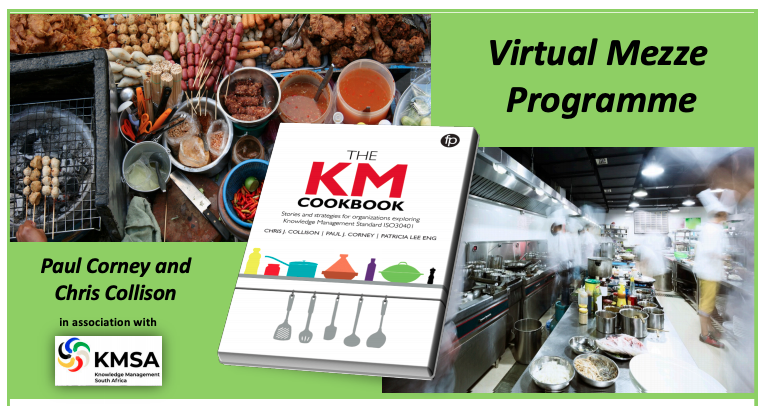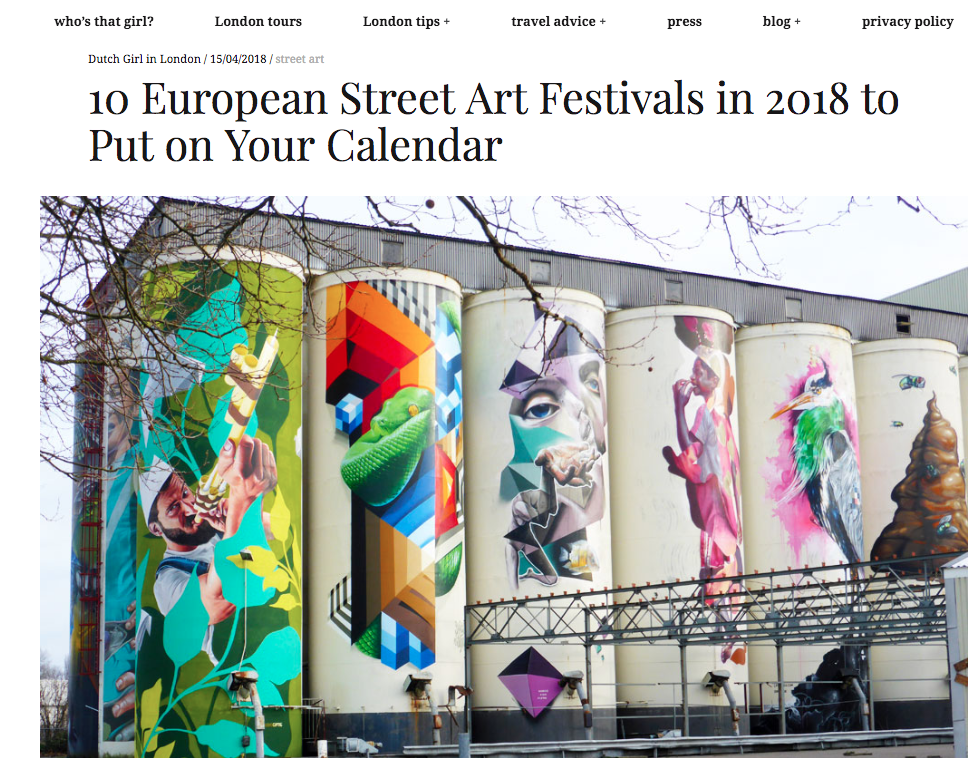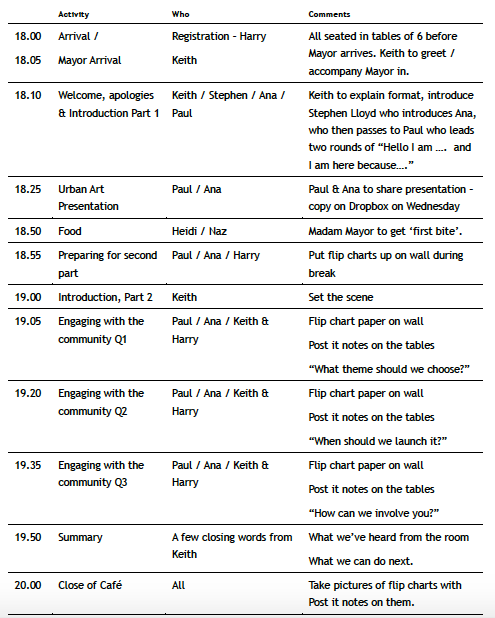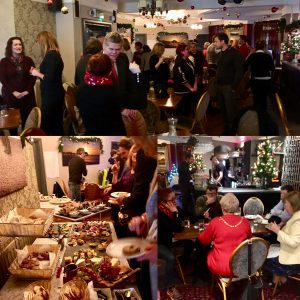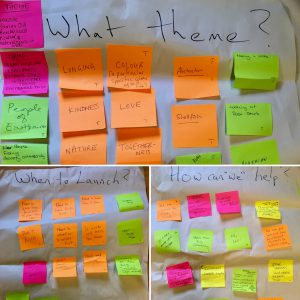It’s been a very hectic period since I returned (just in time before quarantine was reimposed) from Portugal. Since face to face communication is at a premium and Zoom / Team dominates working conversations I thought I’d reflect (#workingoutloud) on ‘stuff’.
KM Cookbook: Virtual Mezze Masterclasses
In the last few weeks, Chris Collison and I have run “behind the firewall” virtual masterclasses for the South African Knowledge Management Community (KMSA) and a prominent law firm. Well attended in each case they were held on Zoom / Mural and Teams / Miro. Both were exceptionally well received- no technical glitches to report – and the brekaout sessions around the KM Chef’s Canvas stimulated much discussion and “to do” lists.
The Walford Award & Presentation
In a couple of weeks time I will be giving the annual Walford keynote address to CILIP’s K&IM Community and presenting this year’s award to the hugely deserving Naomi Korn.
The 2019 event was followed by an enjoyable dinner with other award winners: 2020 is going to be held en famille. I like that the organisers have given me free reign to choose a topic the title of which will be: “Who needs knowledge professionals?” It’s not too late to sign up, see here.
The Knowledge Management Officer
A month ago Professor Eric Tsui asked me (and a number of others in the KM community) if I’d be willing to create a short video clip for his Hong Kong students about what it takes to be a Knowledge Management Officer. It made me reflect on how much or how little the role has changed since I first came across the term back in 1994.
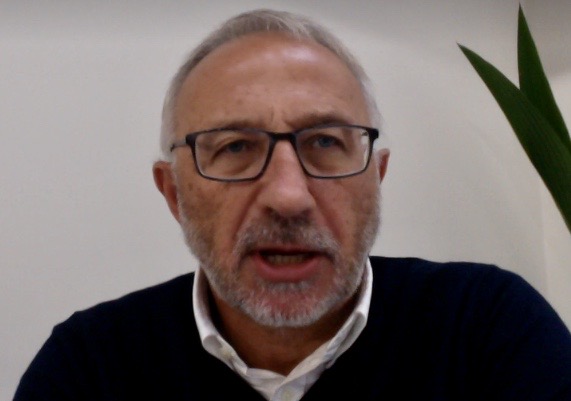
Certifying the certifier: ISO KM Standards
My good friend and coauthor Patricia Eng has been hard at it these past few months preparing for the December launch of Dr Ron McKinley (previously Chair of the ISO Technical Committee that helped develop 30401) and her program for aspiring ISO KM Assessors.
The topic of who certifies the ISO KM assessor has generated much space on KM chat groups with claims and counter claims about who is and is not authorised to undertake an ISO KM Assessment against ISO 30401.
Patricia has always passionately advocated the separation of the consultant and auditor role. Of late there is a danger, with the slew of announcements from The Gulf claiming to be the first program to be certified, that the line is becoming increasingly blurred so the sooner she and Ron can begin accrediting would be assessors the better.
Ron’s Linkedin post ISO 30401 Certification Authority of a few weeks back is worth skimming through. I am looking forward to seeing them differentiate between and knowledge audit and a Km systems audit.
Cobra meetings and Kruger report
I continue to serve on my town’s ‘Cobra Committee’. Comprising Eastbourne’s civic leaders, business heads, health professionals, volunteer groups, enforcement officers, tourism chiefs and our MP, it meets virtually to ensure a coordinated response to issues presented by Covid-19 and that lessons get translated into policy responses.
It’s been tough for the local authorities to interpret guidelines from above while managing social cohesion and with half term holidays approaching the community is bracing itself powerless to prevent an influx of visitors from areas where the incidence of Covid cases per 100k is four times that of our town.
One of the topics I raised at this week’s meeting was the recent report “Levelling up our communities: proposals for a new social covenant“. Attempting to build on the community spirit that has emerged during the Coivd-19 pandemic, the report from Danny Kruger MP, sets out a vision for a more local, more human, less bureaucratic, less centralised society in which people are supported and empowered to play an active role in their neighbourhoods.
The importance of digital inclusion, digital literacy and collaborative public spaces, are topics that, as President Elect of CILIP, I care passionately about. Libraries Connected suggests:
“Libraries are at the heart of communities, reflecting and responding to local needs. They get more visits each year than any other cultural service, with a reach that extends right across income brackets, ages and ethnicities. They play an important role in promoting well-being and community cohesion by producing a range of cultural activities with their local communities, and providing many with access to vital online services.”
In 2013, when I was one of the founding trustees of the Zero Food Waste Charity Plan Zheroes seeking to redistribute edible surplus food to those who needed it, I hoped the issue of free meals during school holidays for those struggling to feed their family might be off the agenda by 2020. Alas it is not. Our MP Caroline Ansell showed her mettle this week, resigning her government post having voted with the opposition on the provision of school meals during the holidays.
The moral maze!
Interestingly and unrelated to the above, CILIP CEO Nick Poole tweeted this:
“When you strip it down, when you get right past politics and the law, the bedrock is morality. Each of us is at liberty to make a moral choice about how we treat the poorest and most vulnerable in our society. We ought to judge our politicians on the morality of their choices.”
To which I replied:
“@NickPoole1 Eastbourne’s current MP @Caroline_Ansell made her moral choice yesterday and resigned from HMG. @StephenLloydEBN the previous MP resigned the LibDem whip a few years back, also over a matter of conscience. Must be the sea air!!!”
And he responded:
“Thanks Paul! I honestly think we should fete politicians who vote with their moral conscience to the rooftops – anyone who remains in Government is morally complicit in its actions.”
And finally
November is shaping up to be very busy. I was due to start it in Lisbon but the twin demands of work and threat of enforced quarantine on my return caused a postponement. Instead I’ve 5 speeches / events to run from the confines of my Home Office or that of Bees Homes Country Office and views to die for!
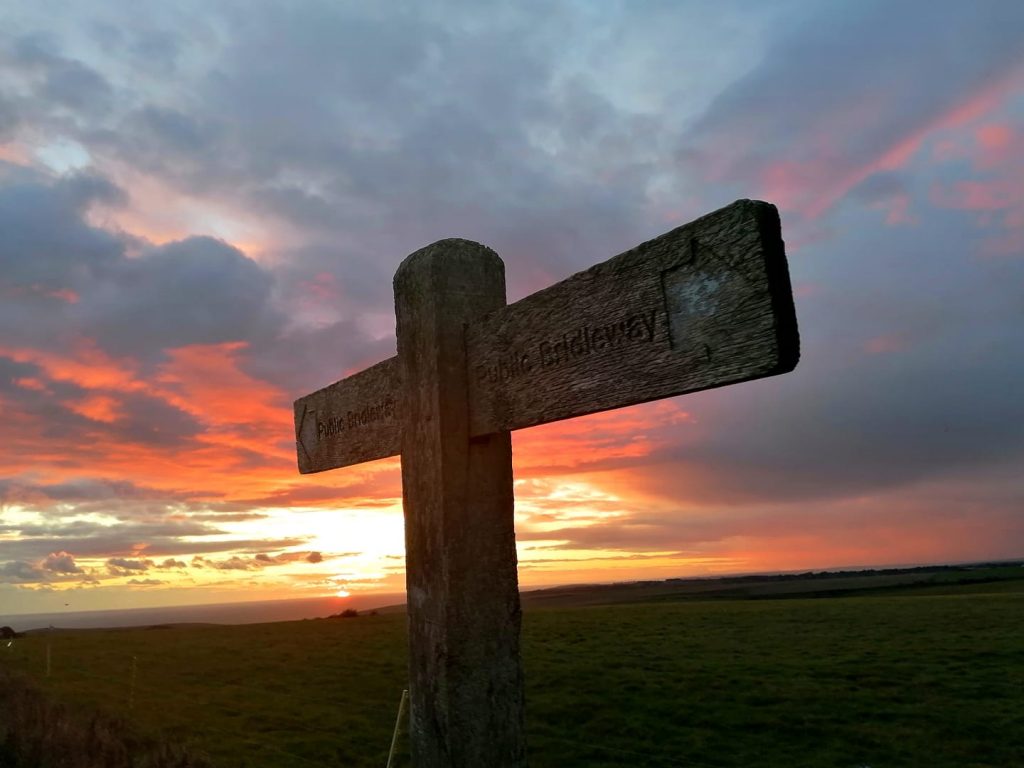
#Distributedworking is now becoming the norm. The housing market is awash with urban buyers looking for country idylls in which to combine home and work as a result of Covid and firms relocating and changing their working patterns. Here’s just one example from Reuters of 19th October:
“Deloitte said Saturday it would close four of its 50 offices in the UK — but staff will remain at the big four firm on work-from-home contracts.“
An updated report from thinktank New Financial notes 332 financial services firms have already moved jobs out of London because of Brexit, up from 60 last time they looked in March. It makes sobering reading but presents a huge opportunity for the agile, tenacious and knowledgeable professional.
As I will suggest in a forthcoming presentation awareness of the importance of the role of knowledge professionals is growing as firms struggle with knowledge loss due to downsizing, finding ‘stuff’ in opaque systems, collaborating effectively and facilitating virutal conversations.
It promises to be an interesting 3 months: the US Election; further global lockdowns; UK’s severing of ties with Europe; and yours truly taking on the role of CILIP President at a time of great change!

